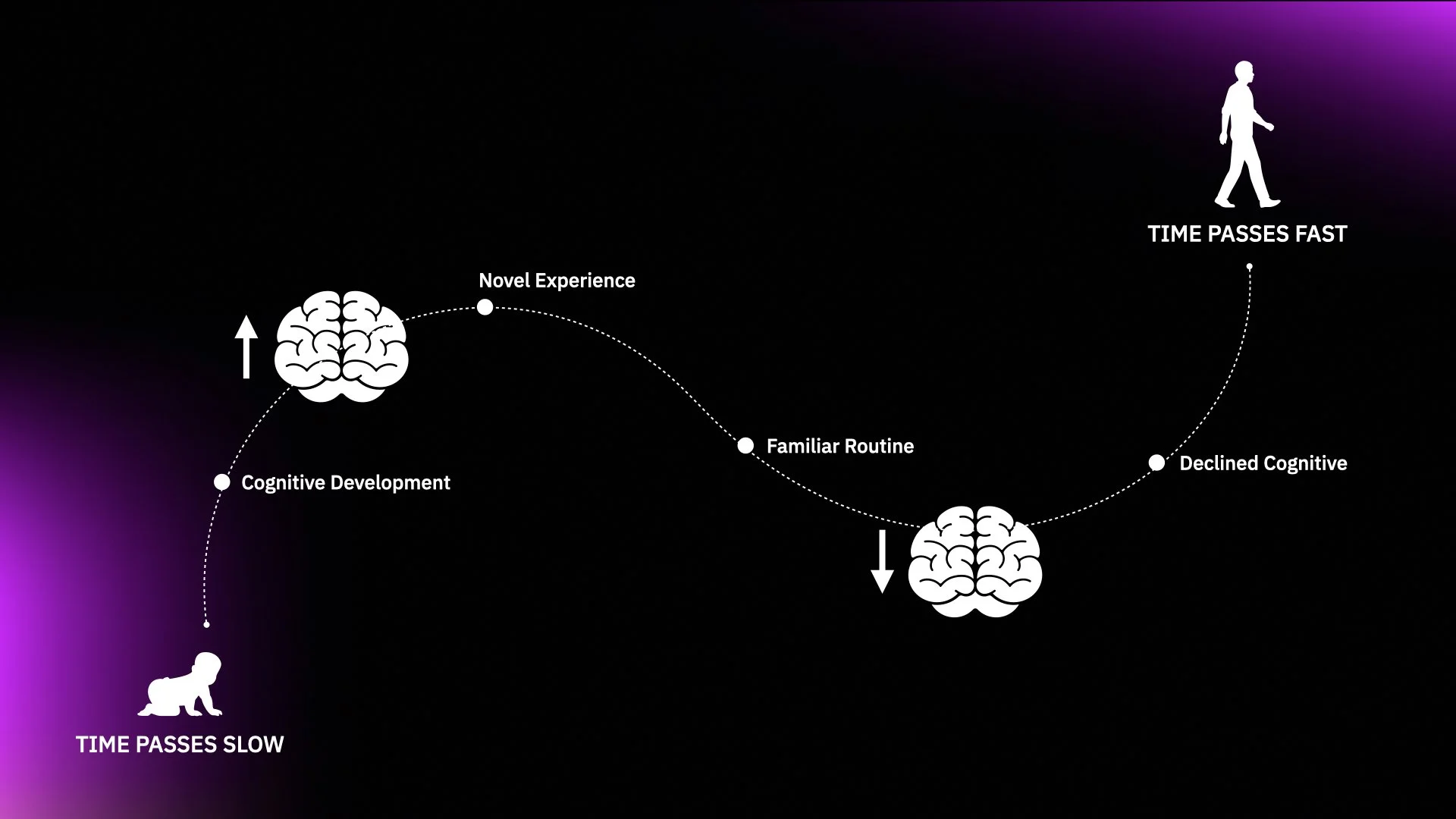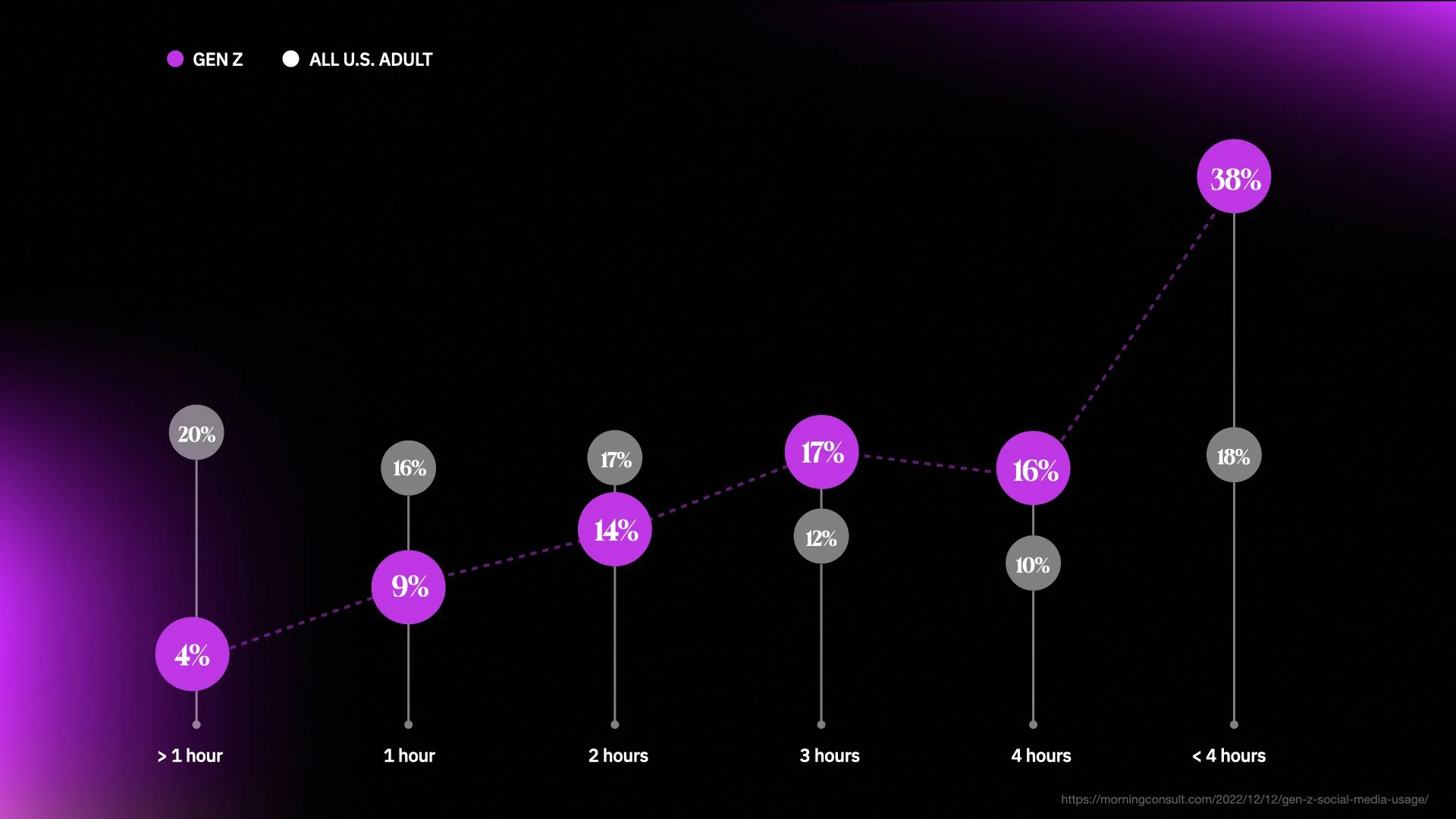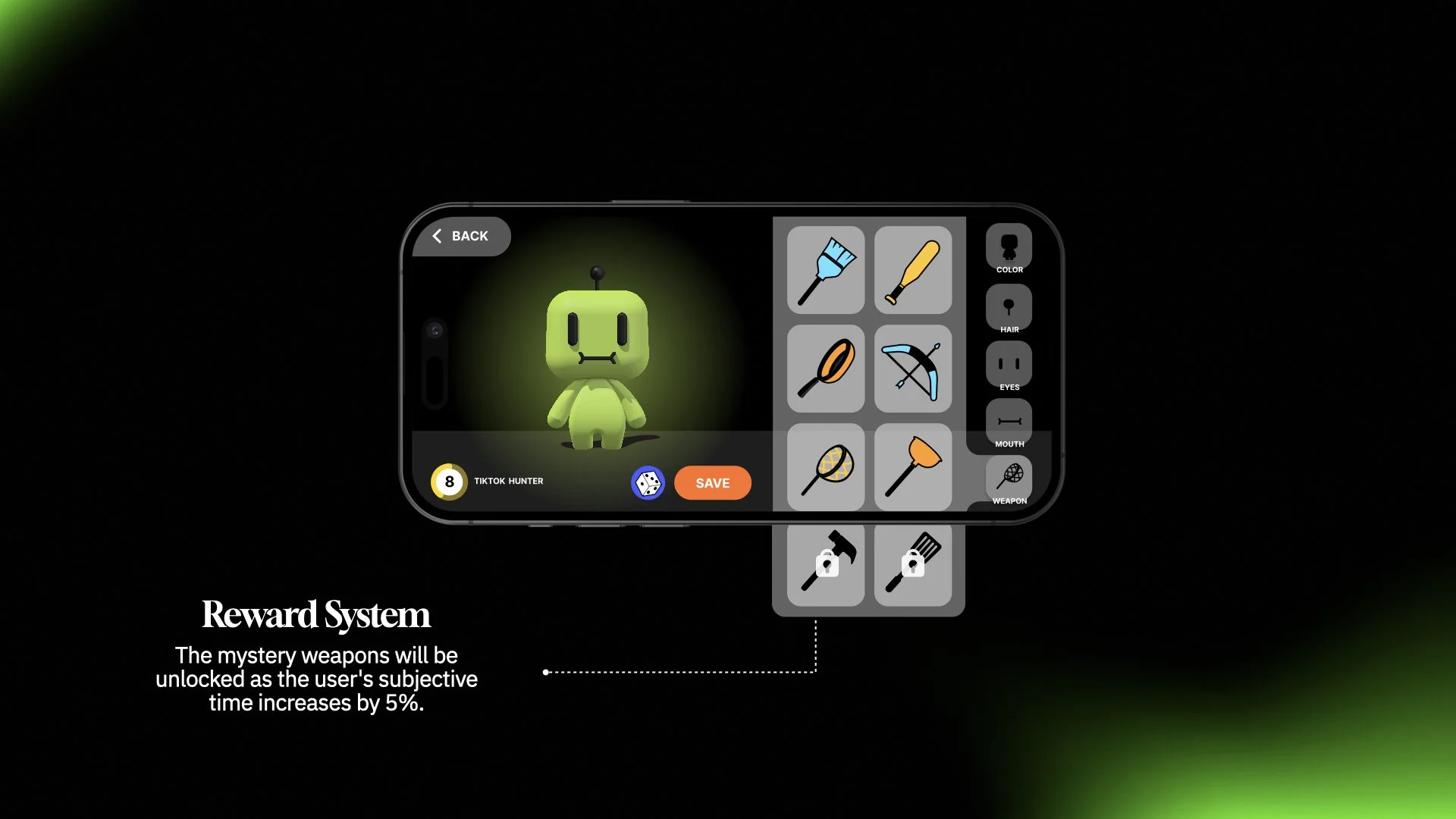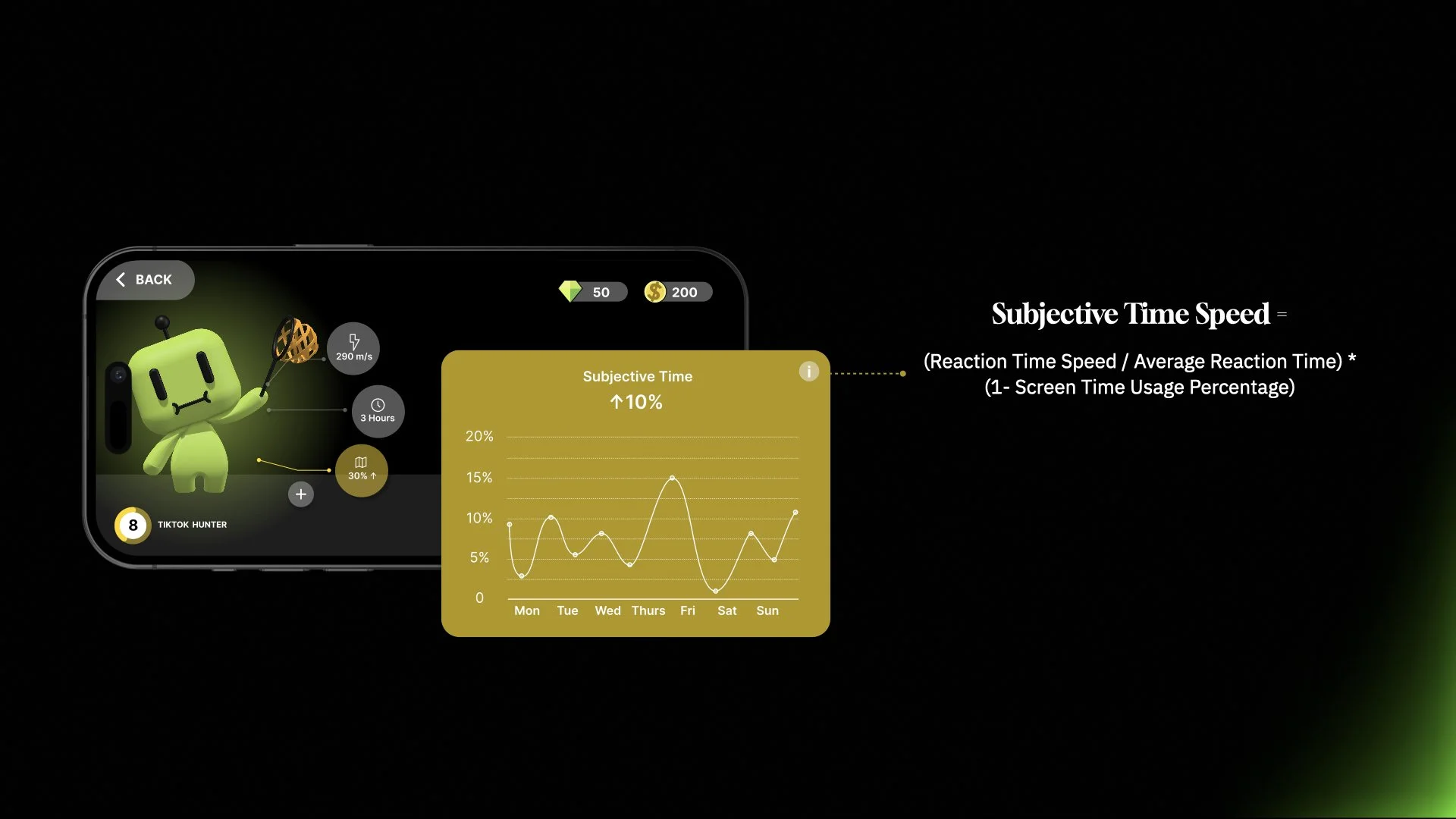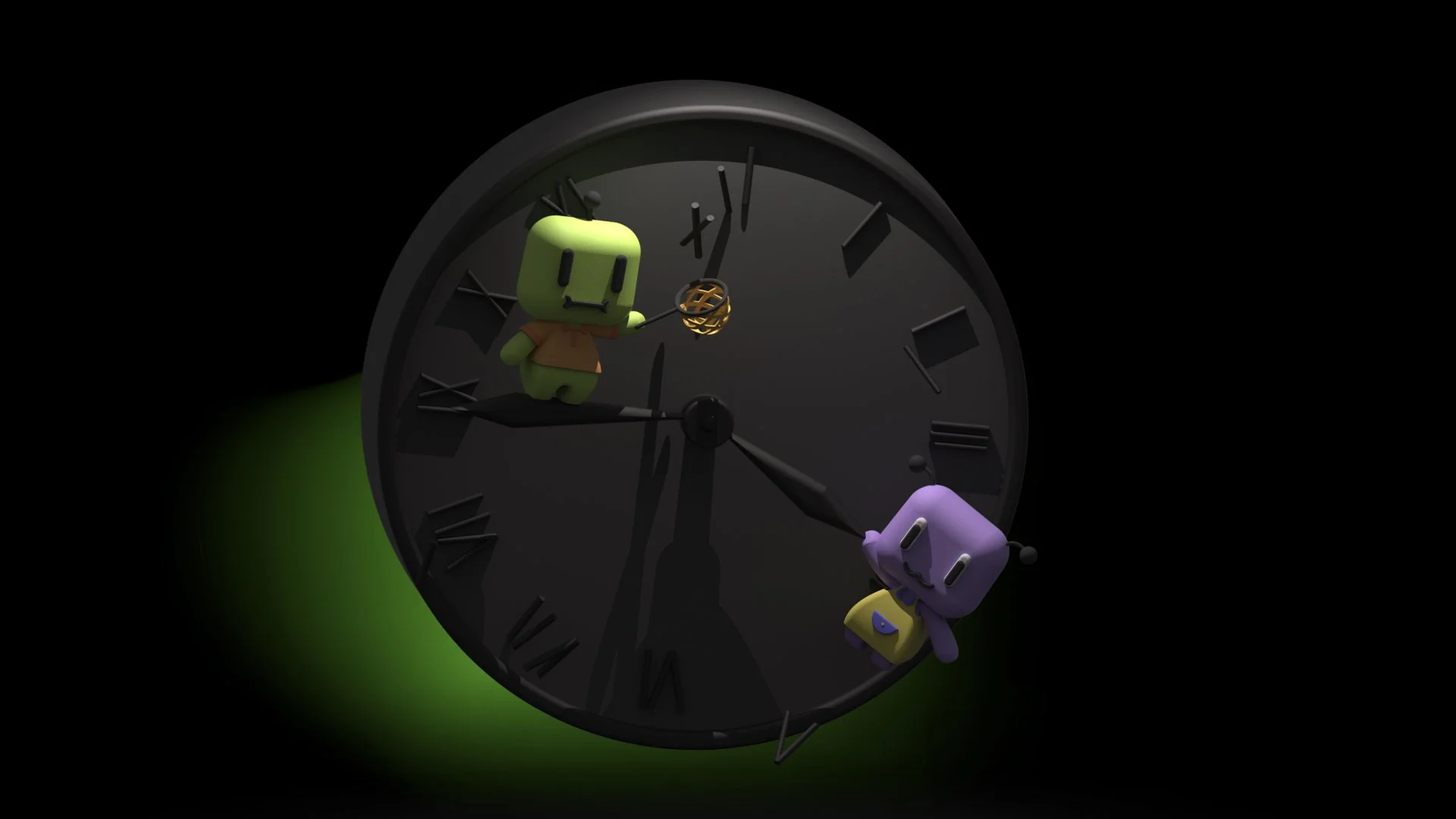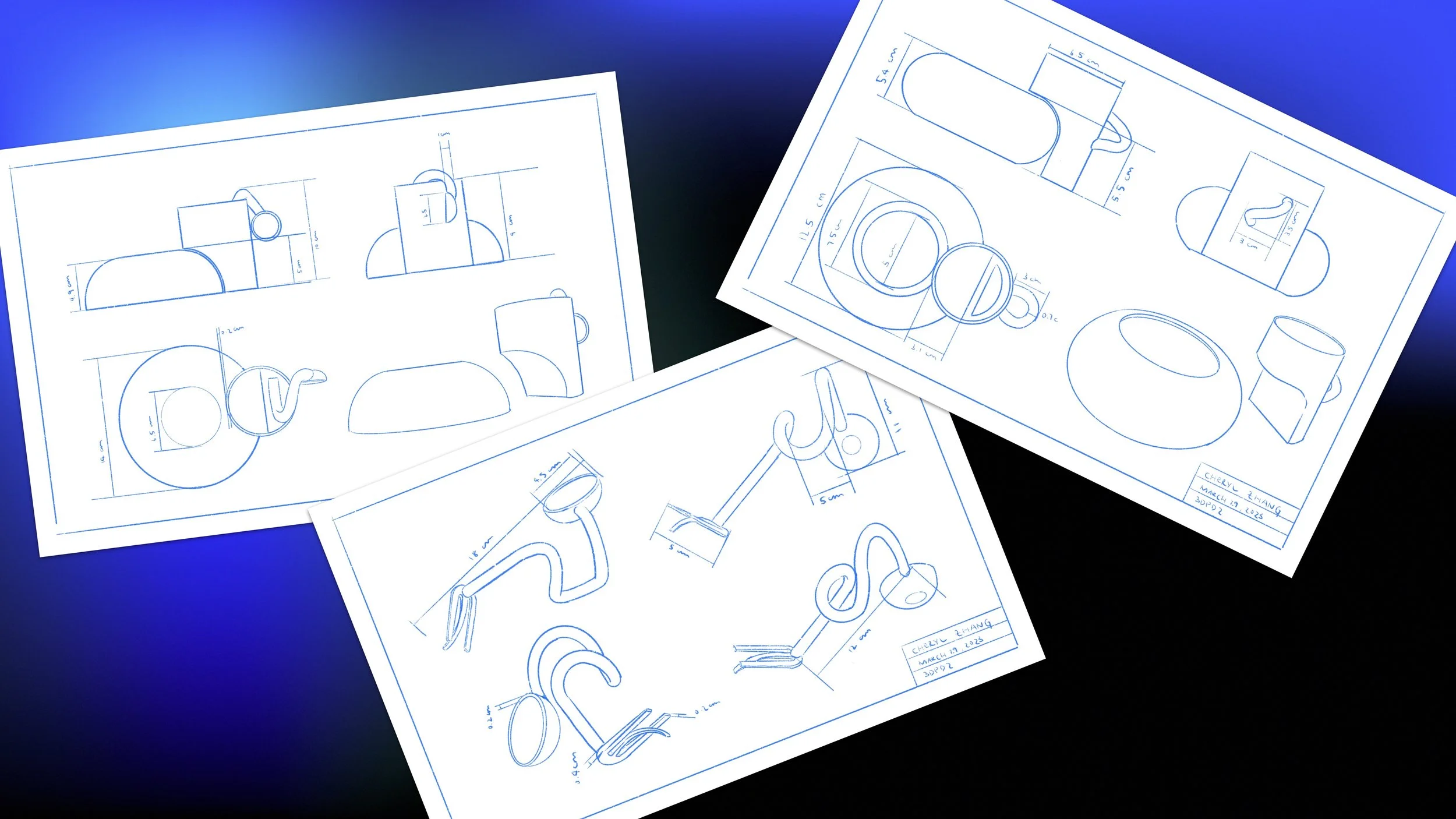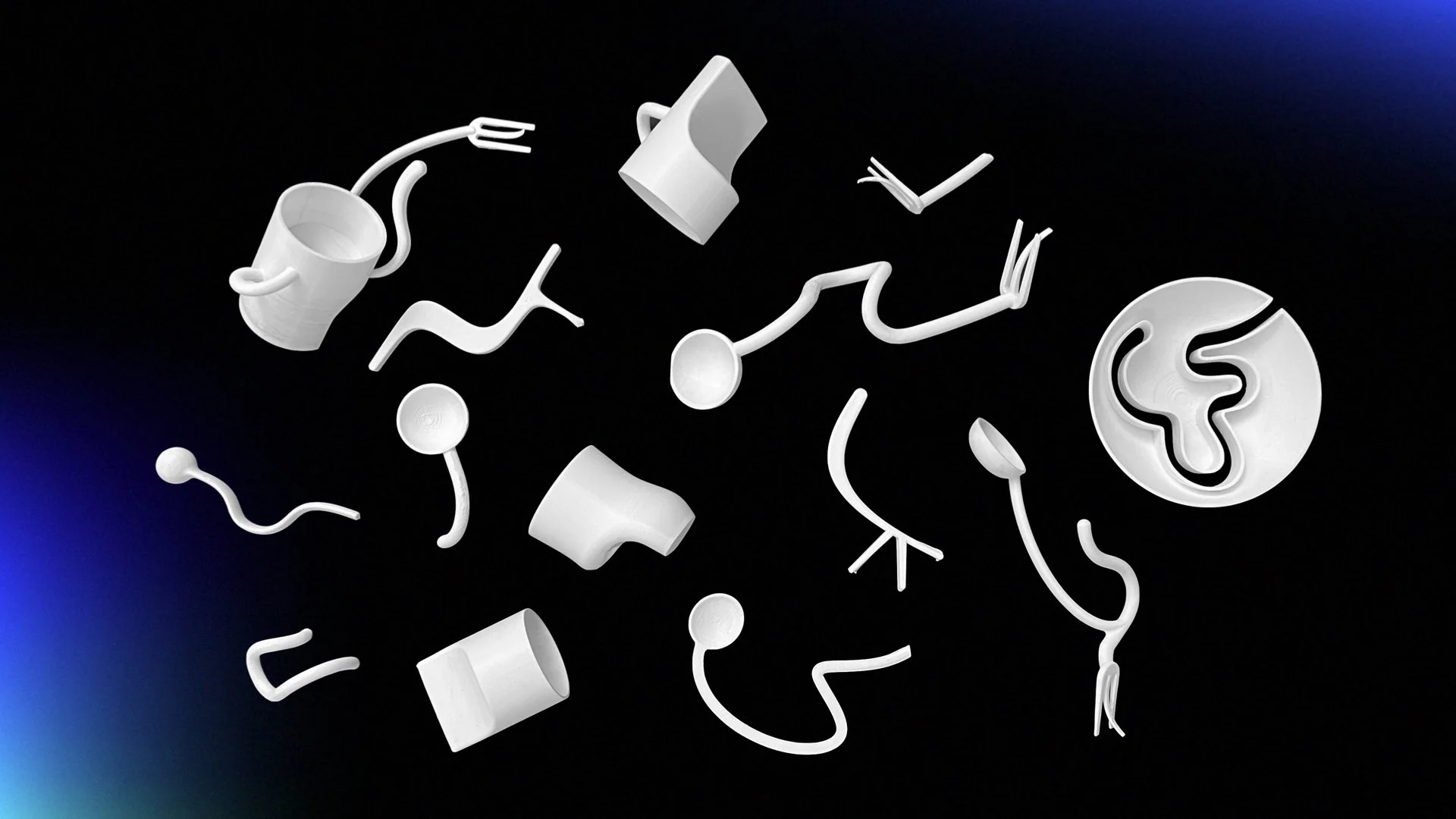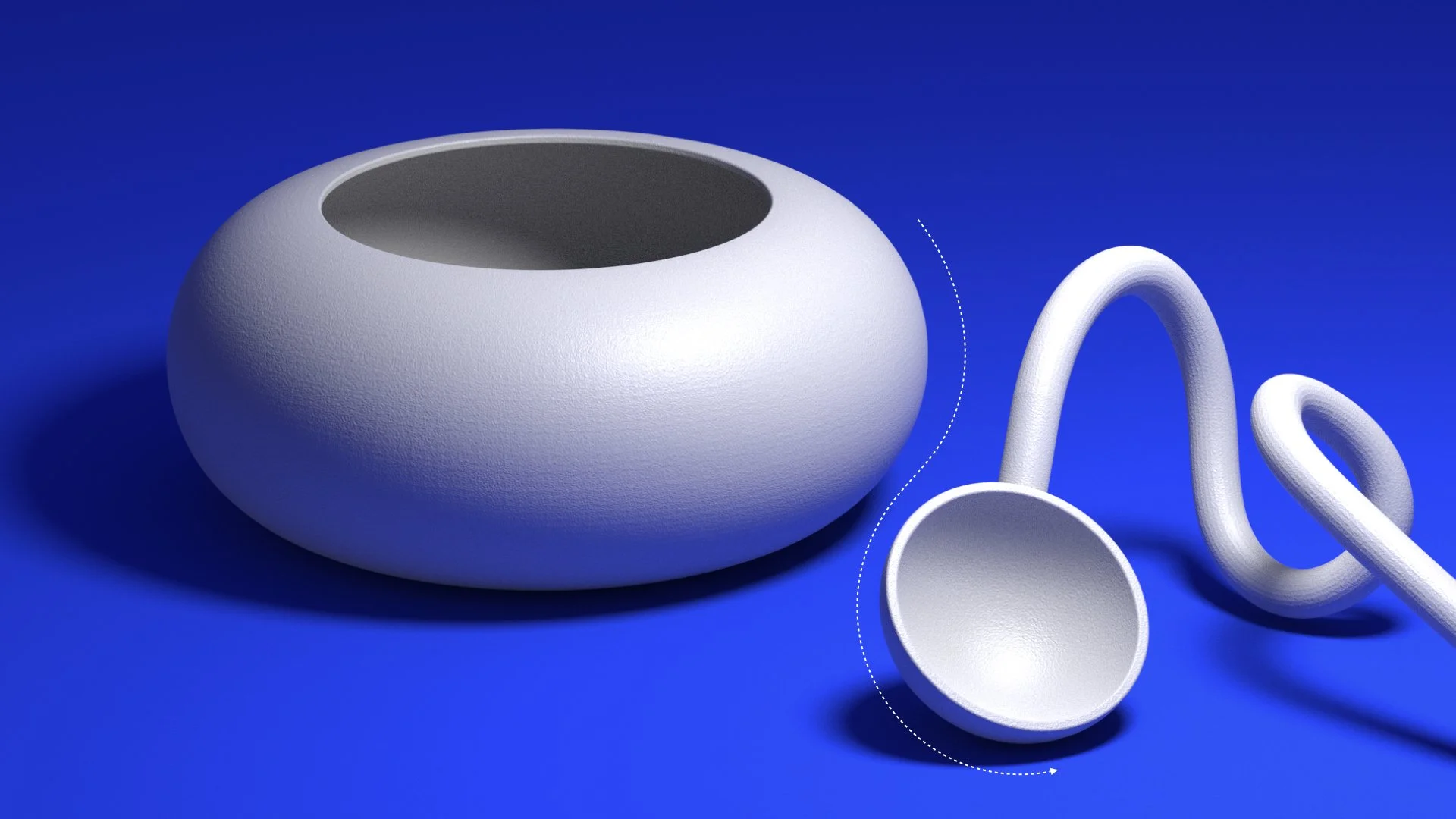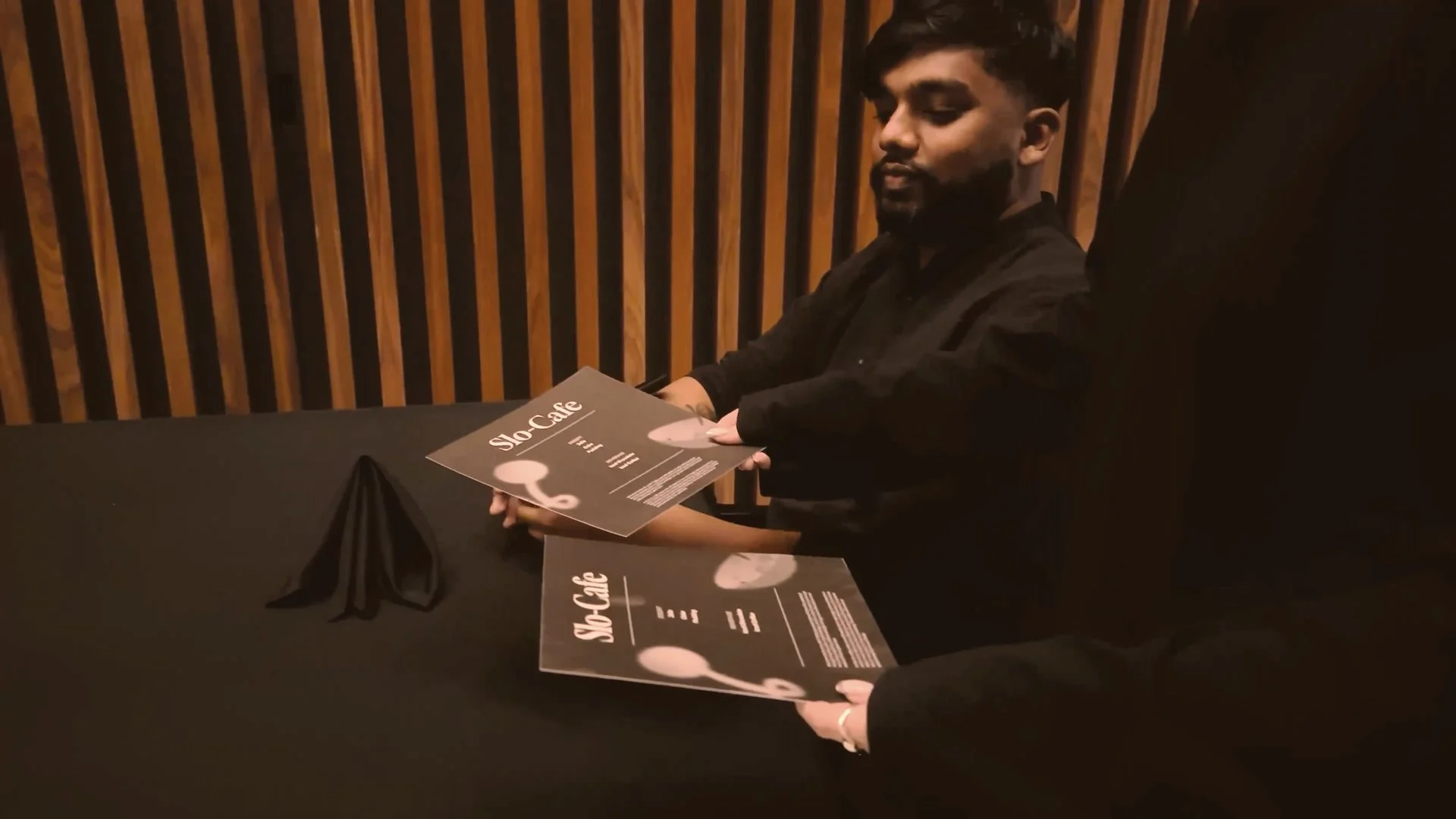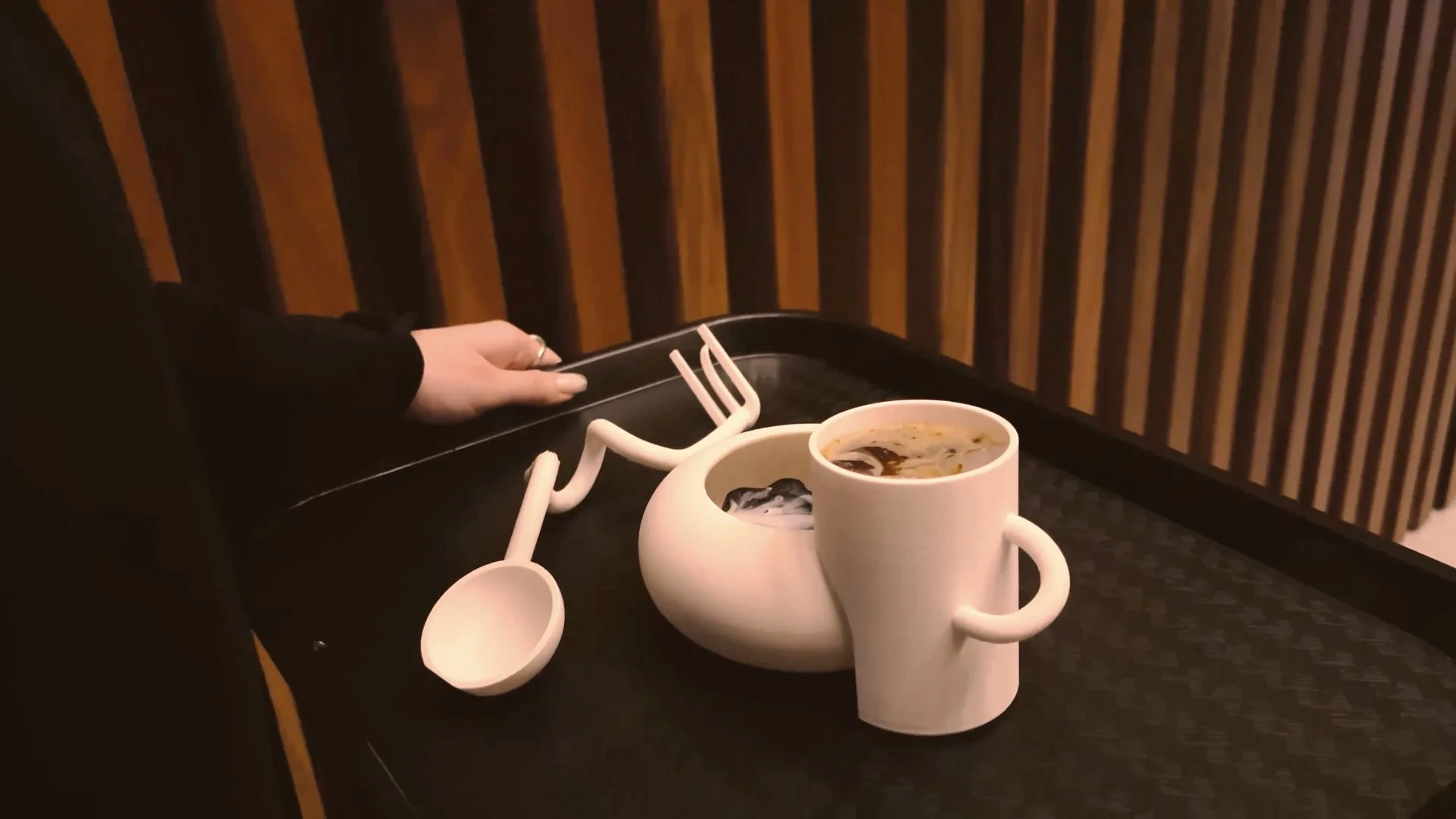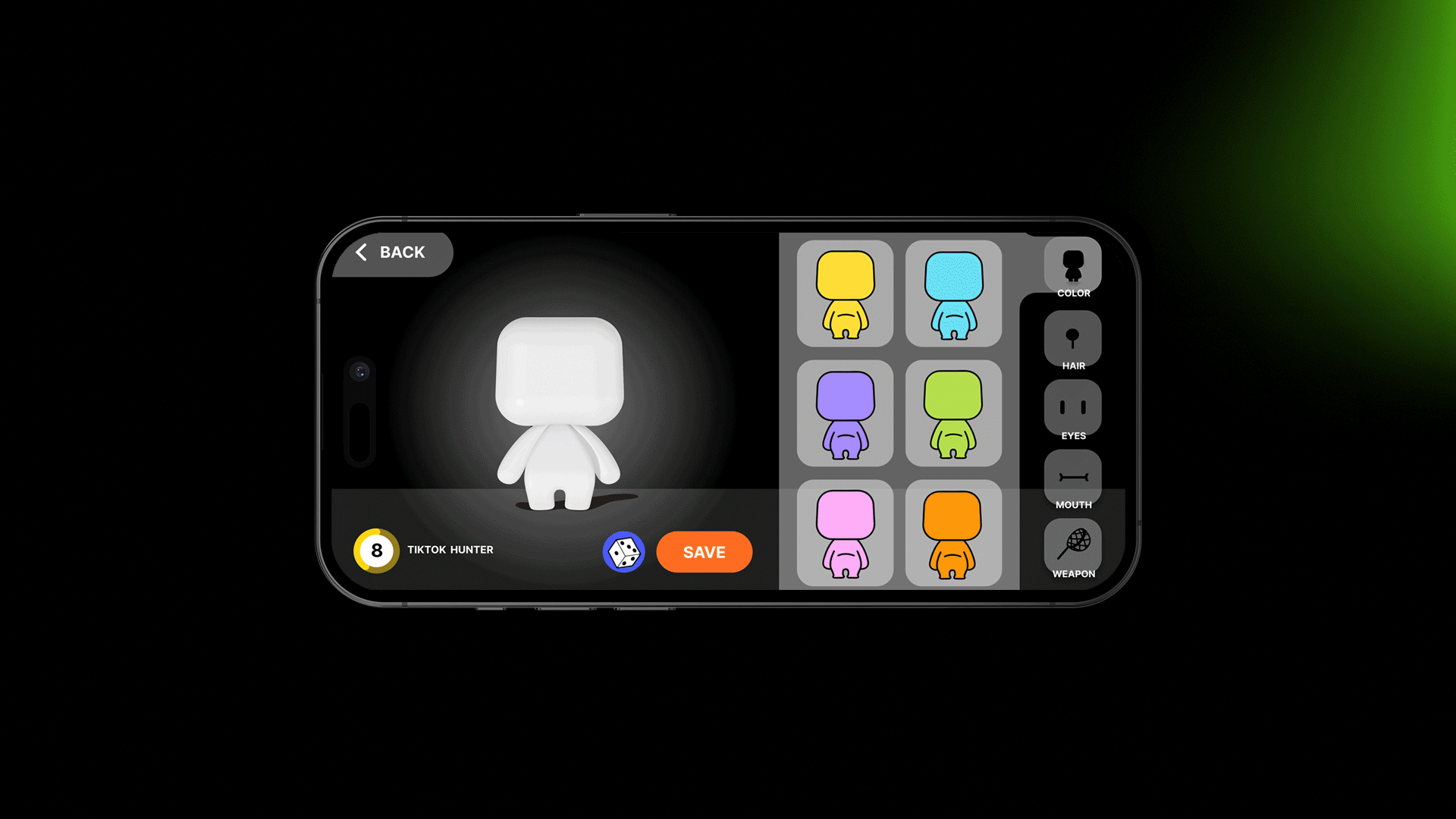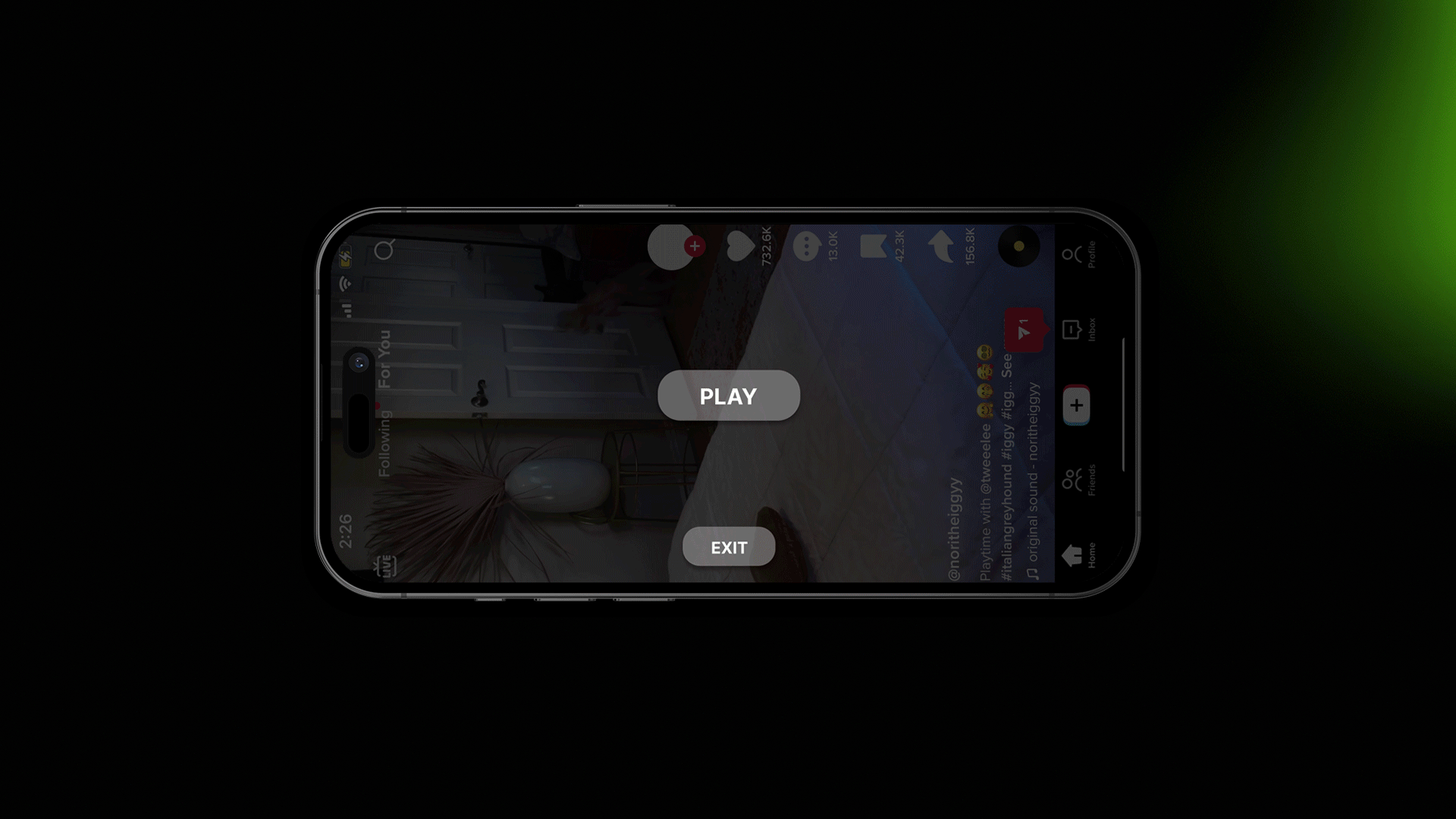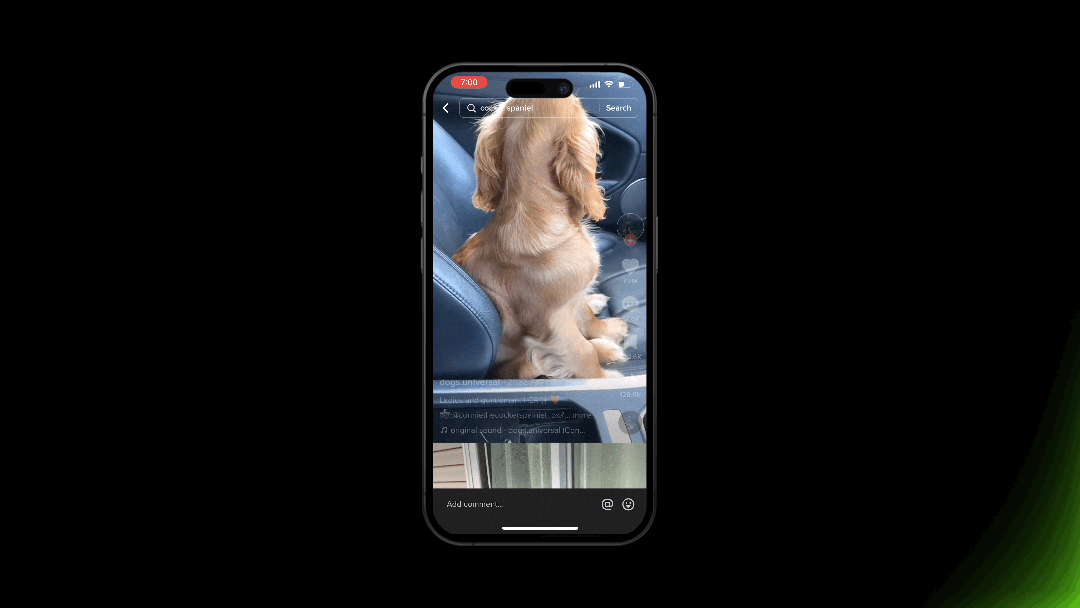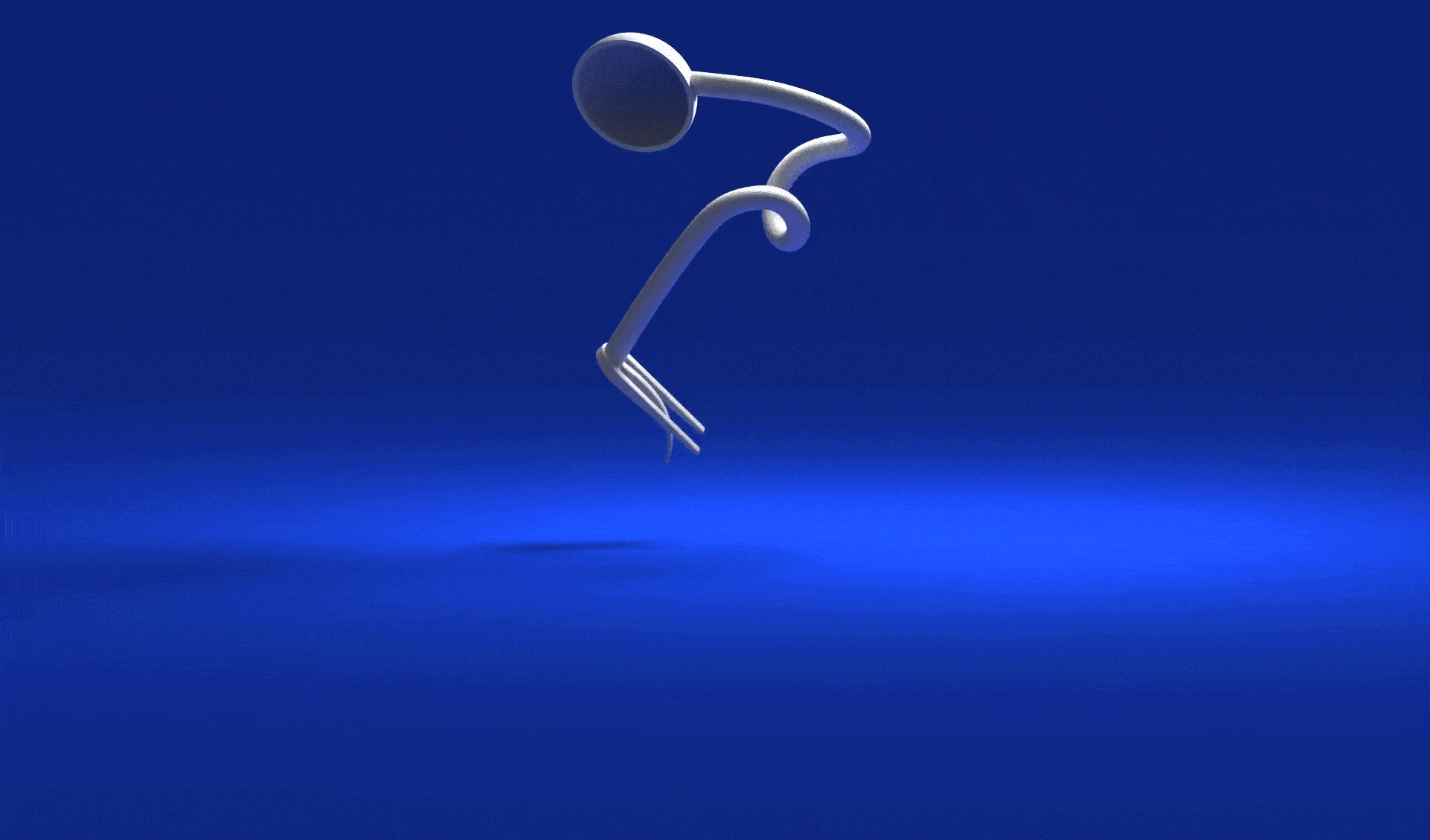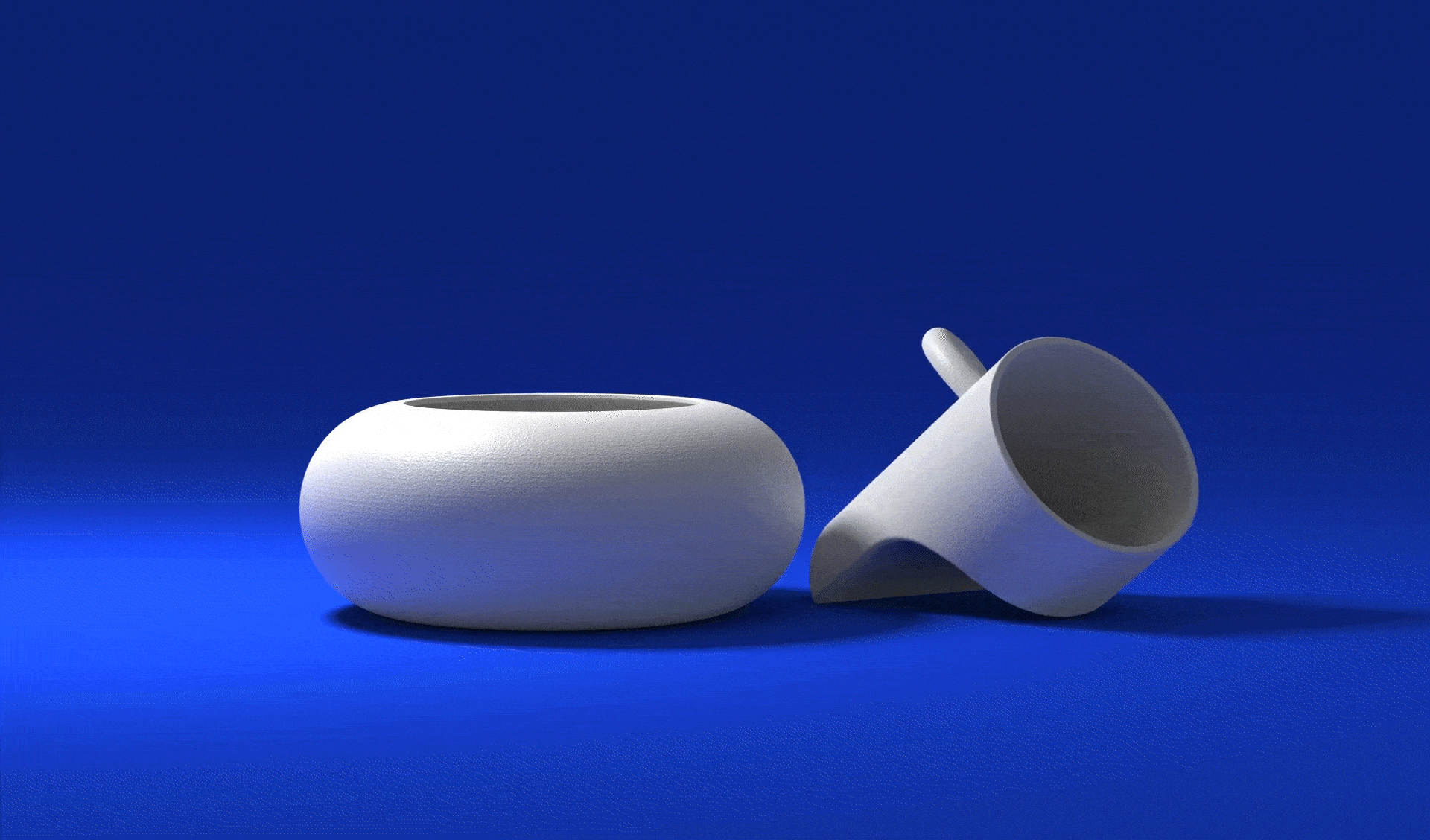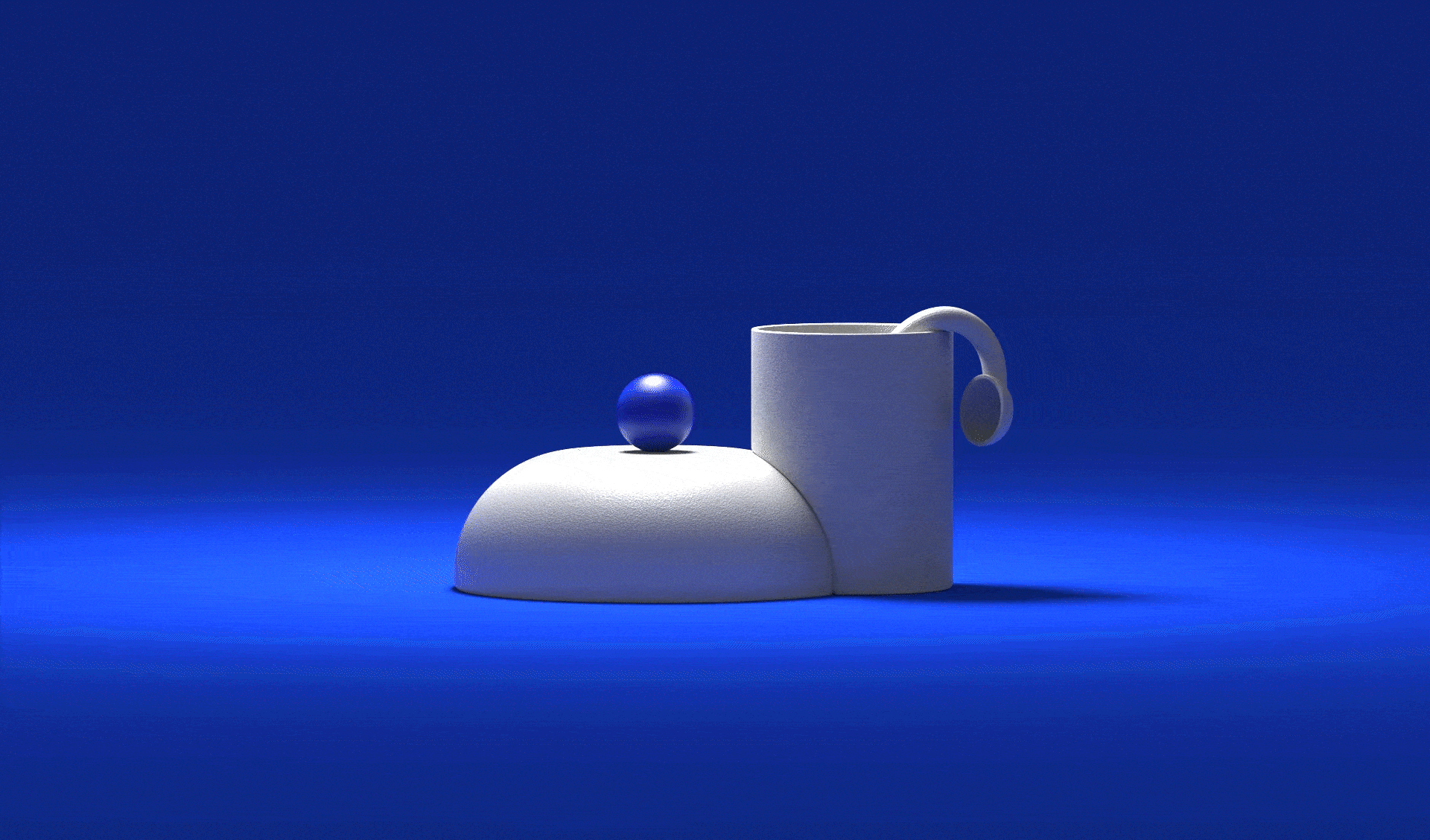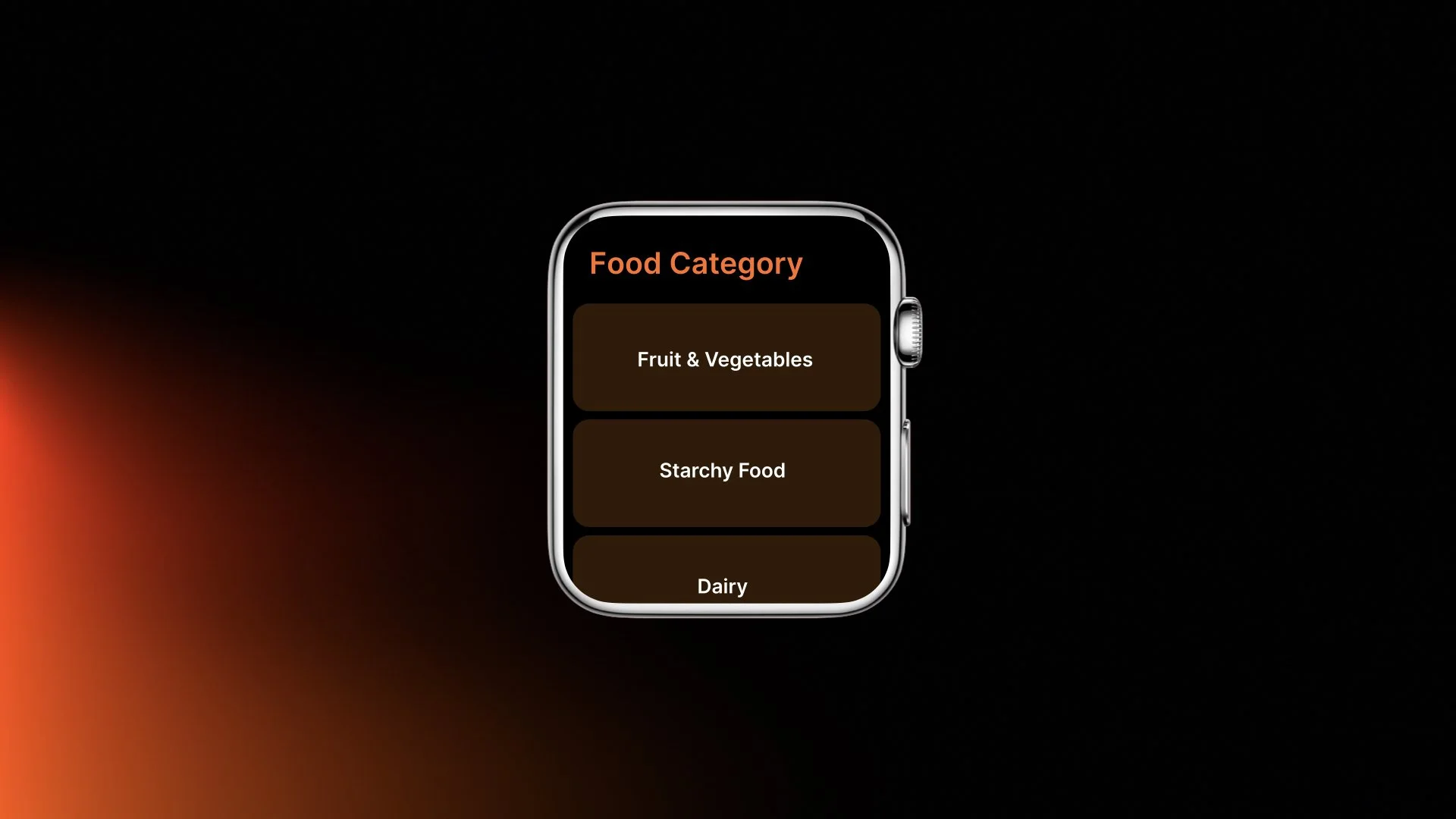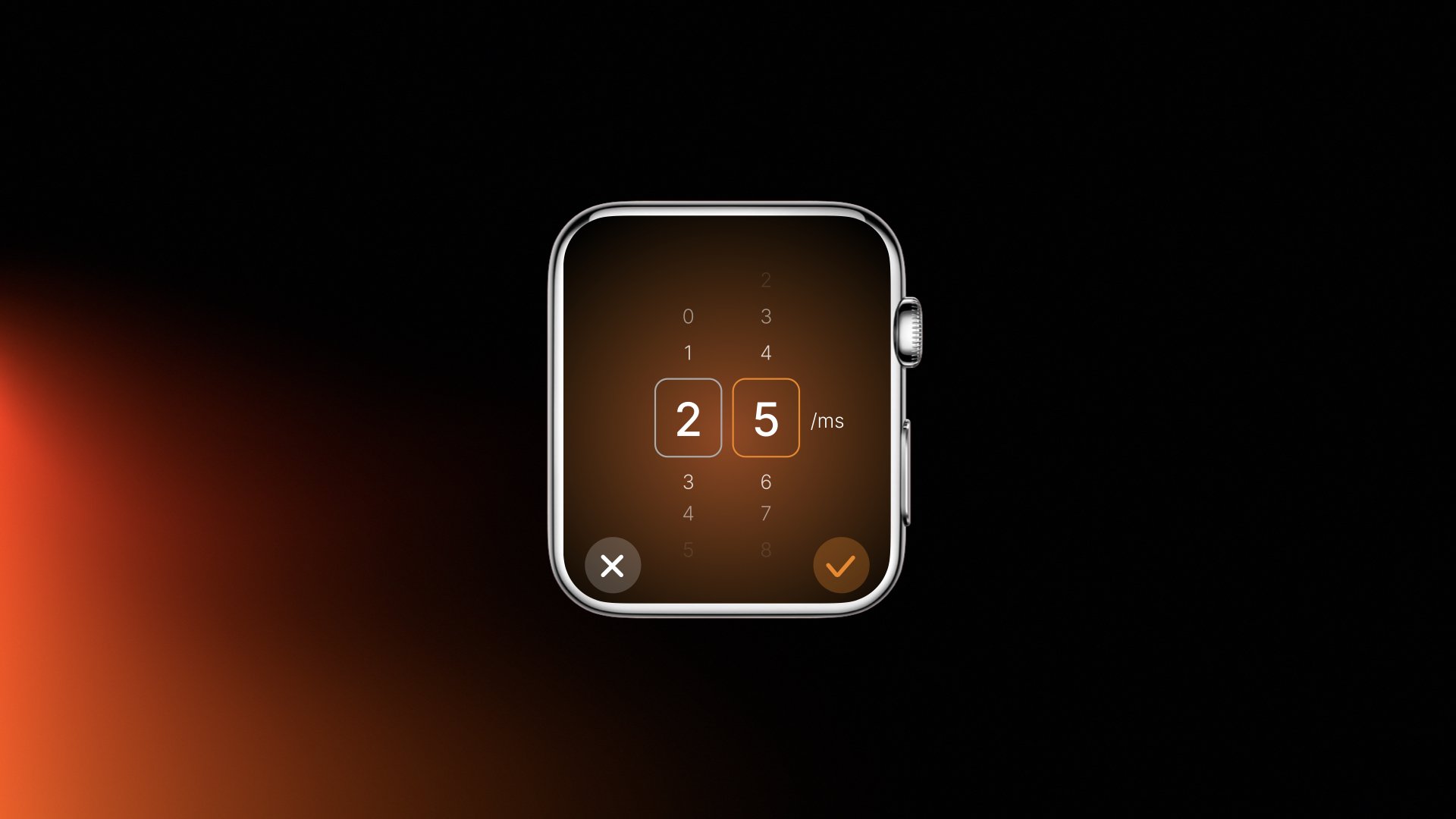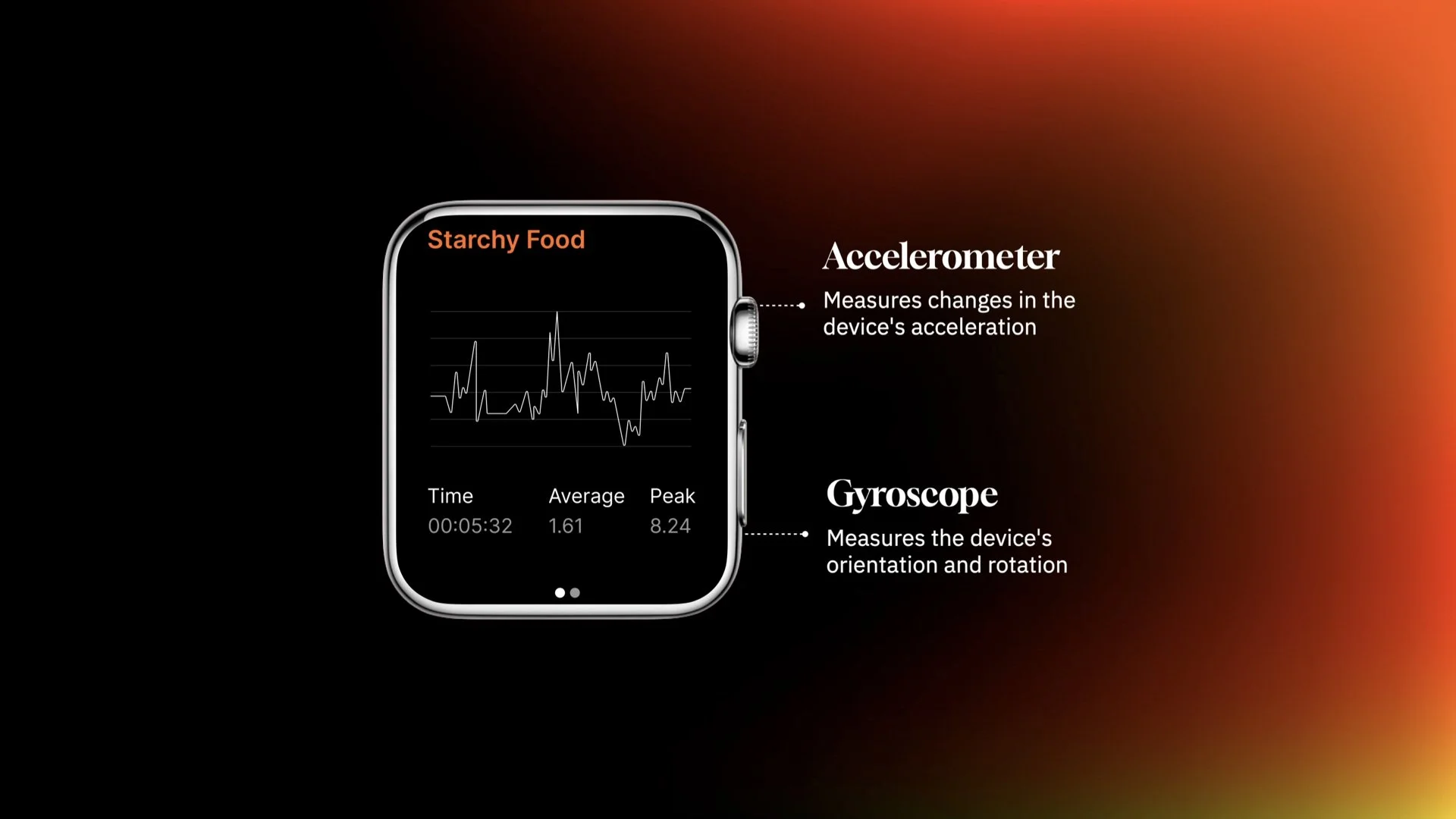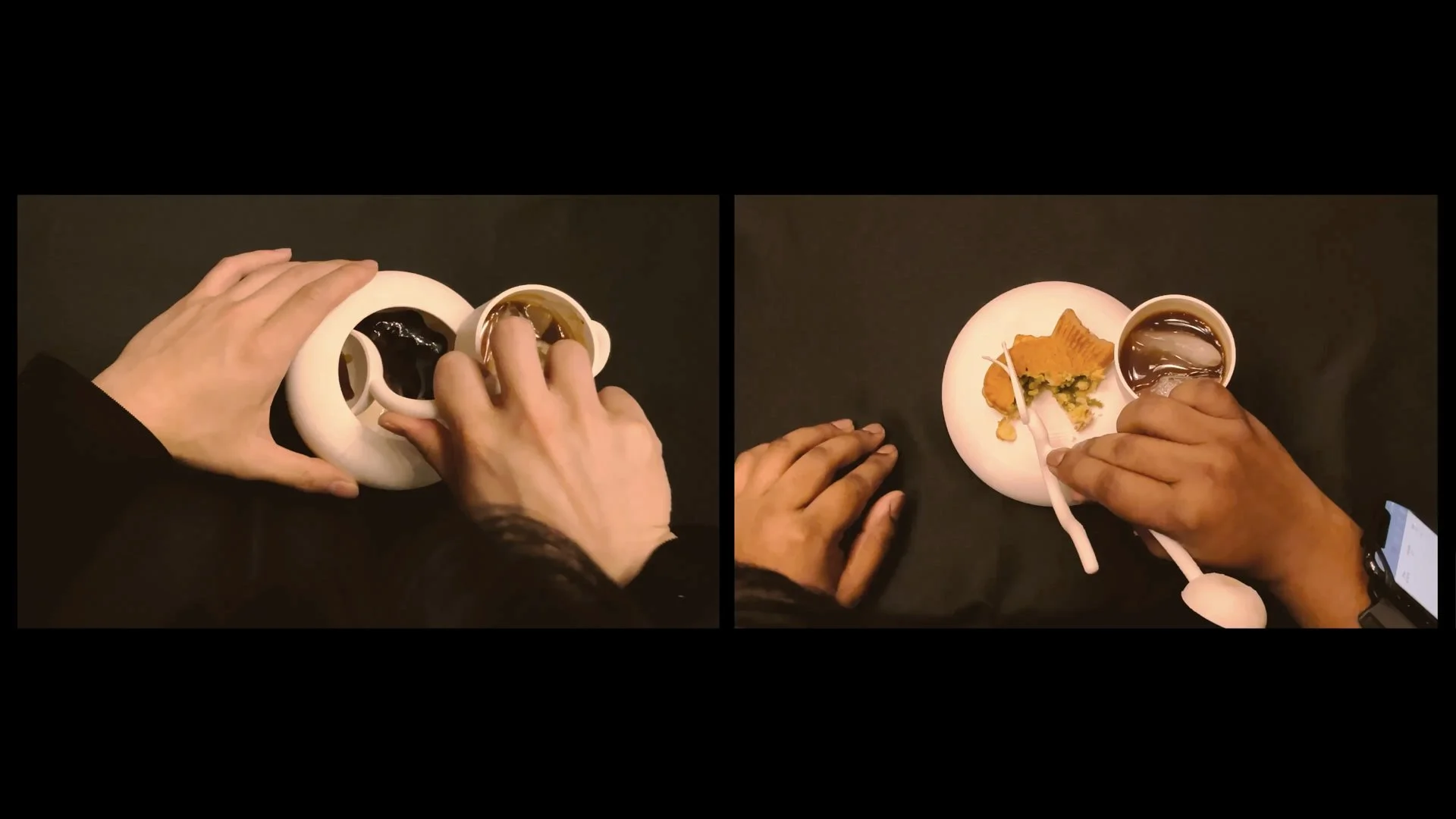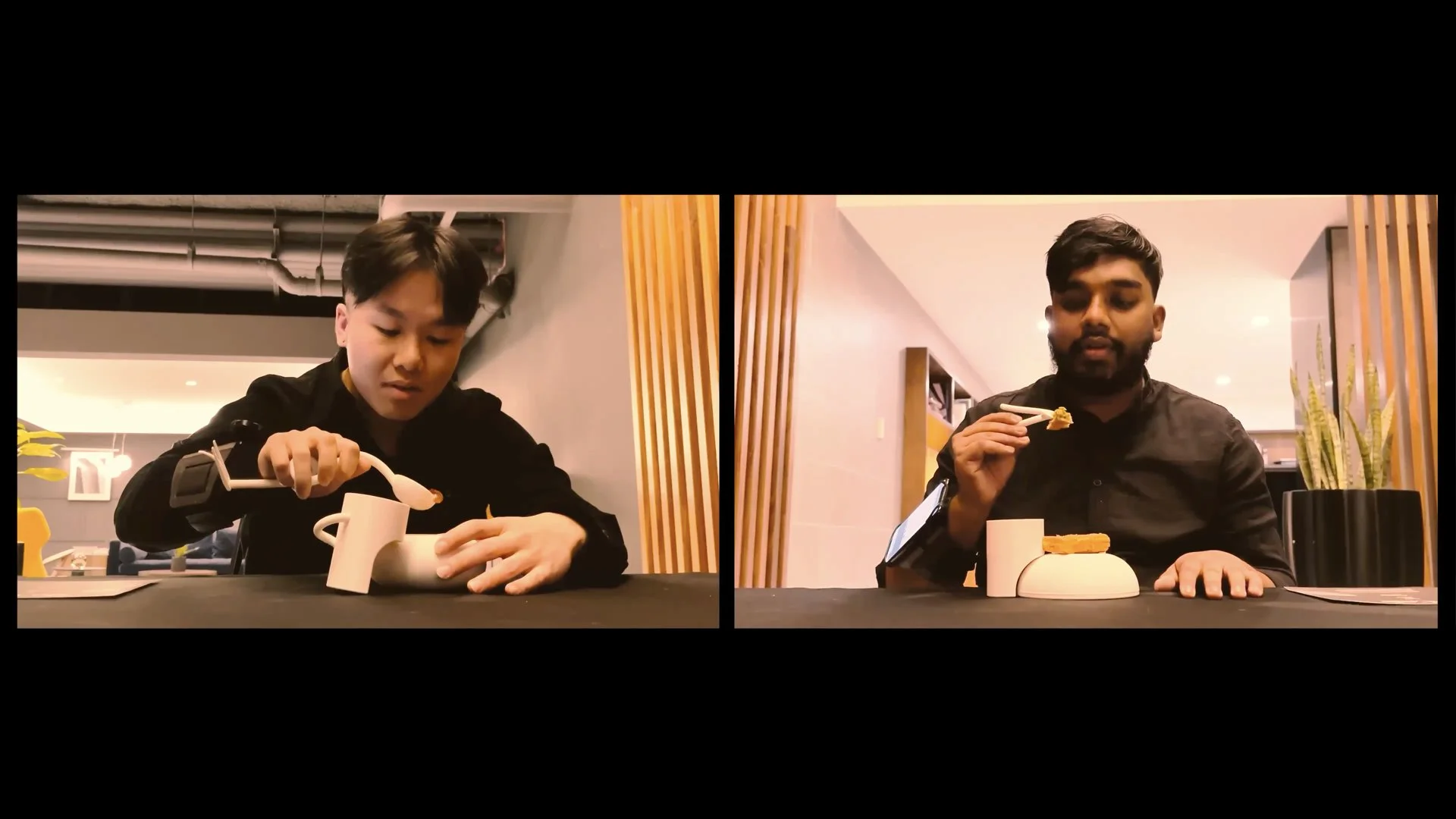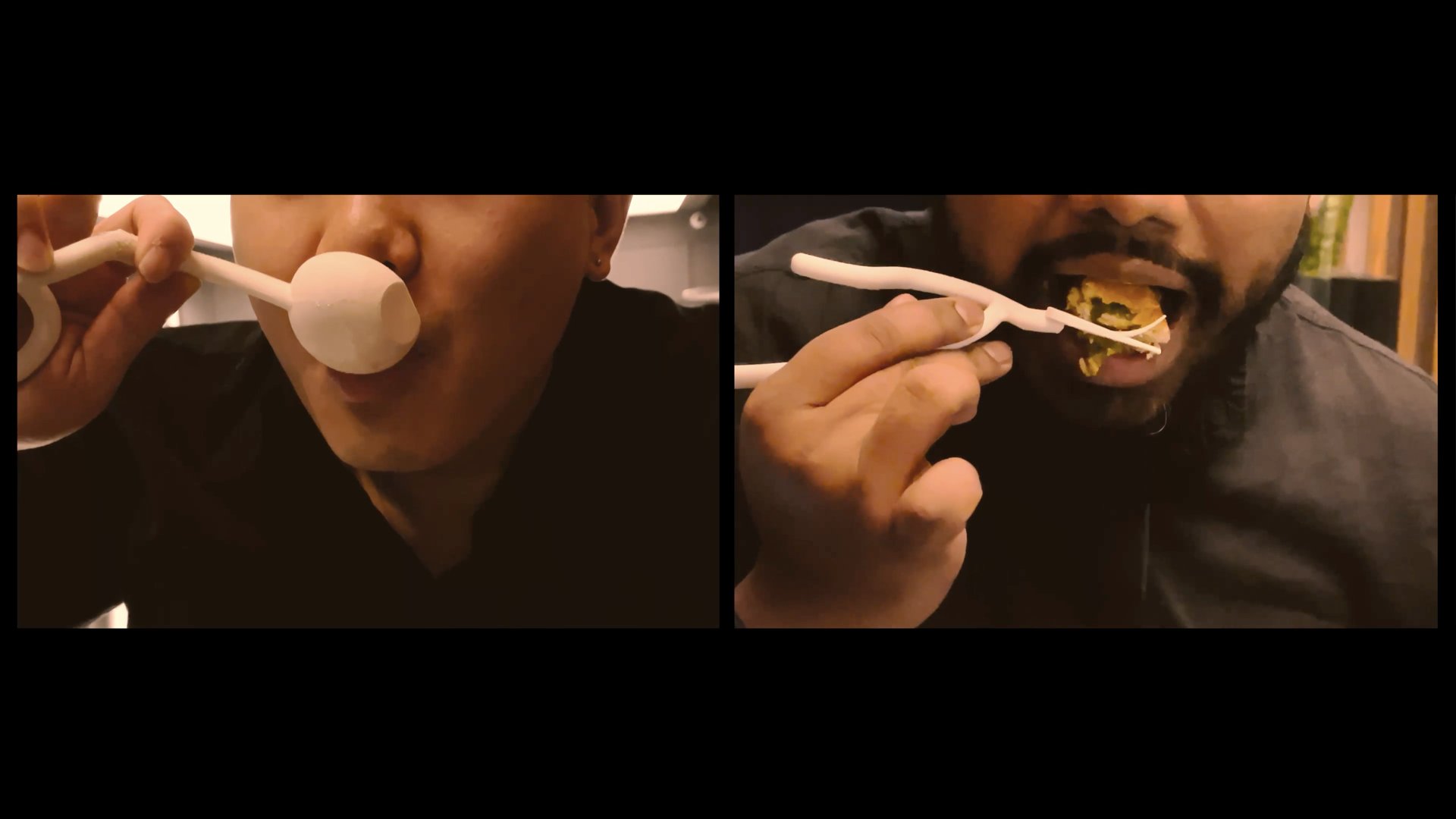Temporal Illusions: Distorting Our Perceptions of Time
Cheryl Zhang's Thesis, Temporal Illusions: Distorting Our Perceptions Of Time, investigates the phenomenon of why time seemingly passes slower when we are younger, compared to the sensation of "time flying" as we grow older. If there are stages of human life that reflect variance in perception of time, what is the possibility of replicating and distorting the process?
"Time is infinite, but we are not infinite in it." — Daphne Guinness, designer
Cheryl explains that her research revealed that “Generation Z is an outlier whose subjective time operates with 'technological speed' rather than 'metabolic speed.' GenZ, born into a hyperconnected digital world, perceives time passing faster than previous generations. With the constant flow of information and stimuli from social media, it is difficult for them to differentiate between past and present events.”
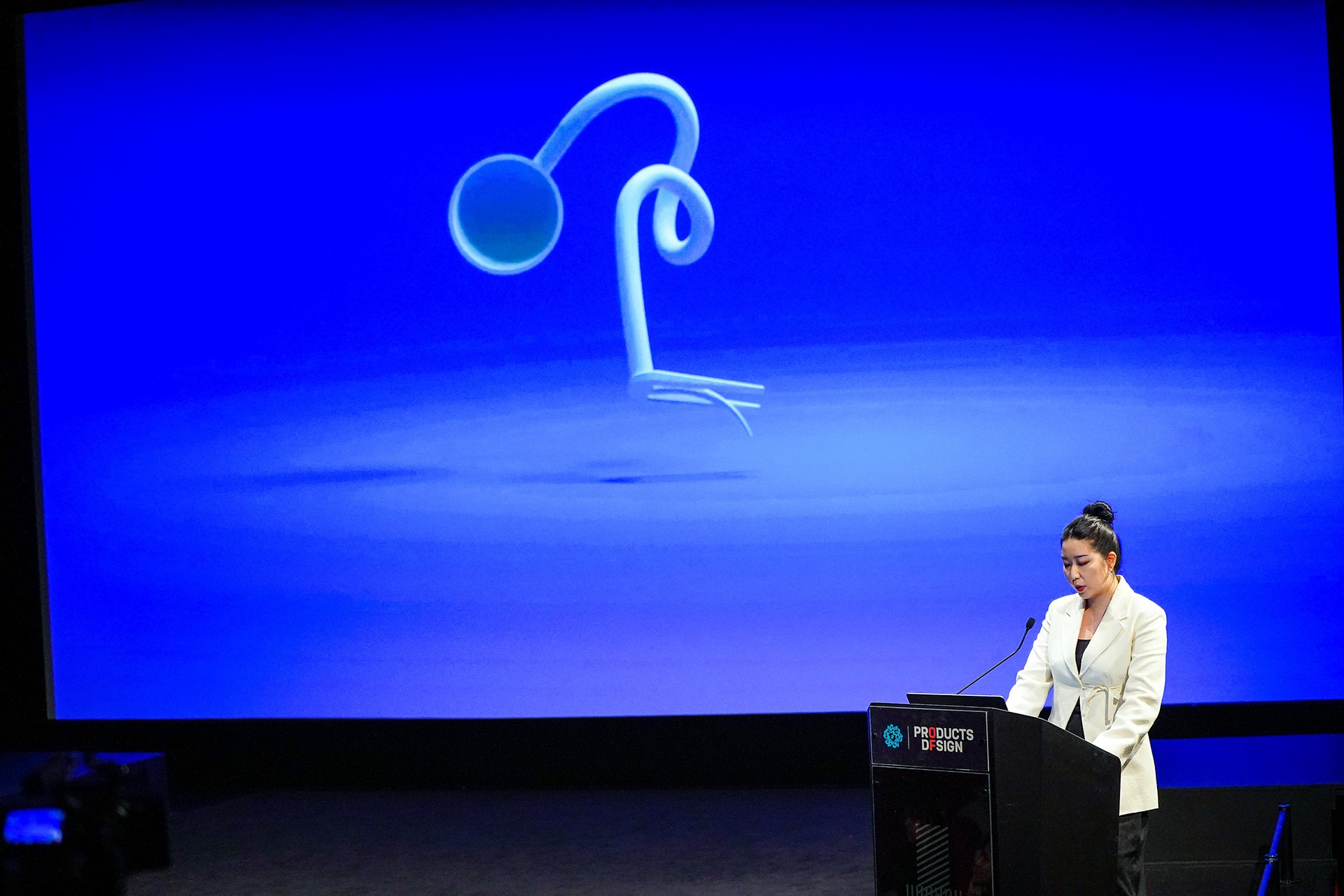
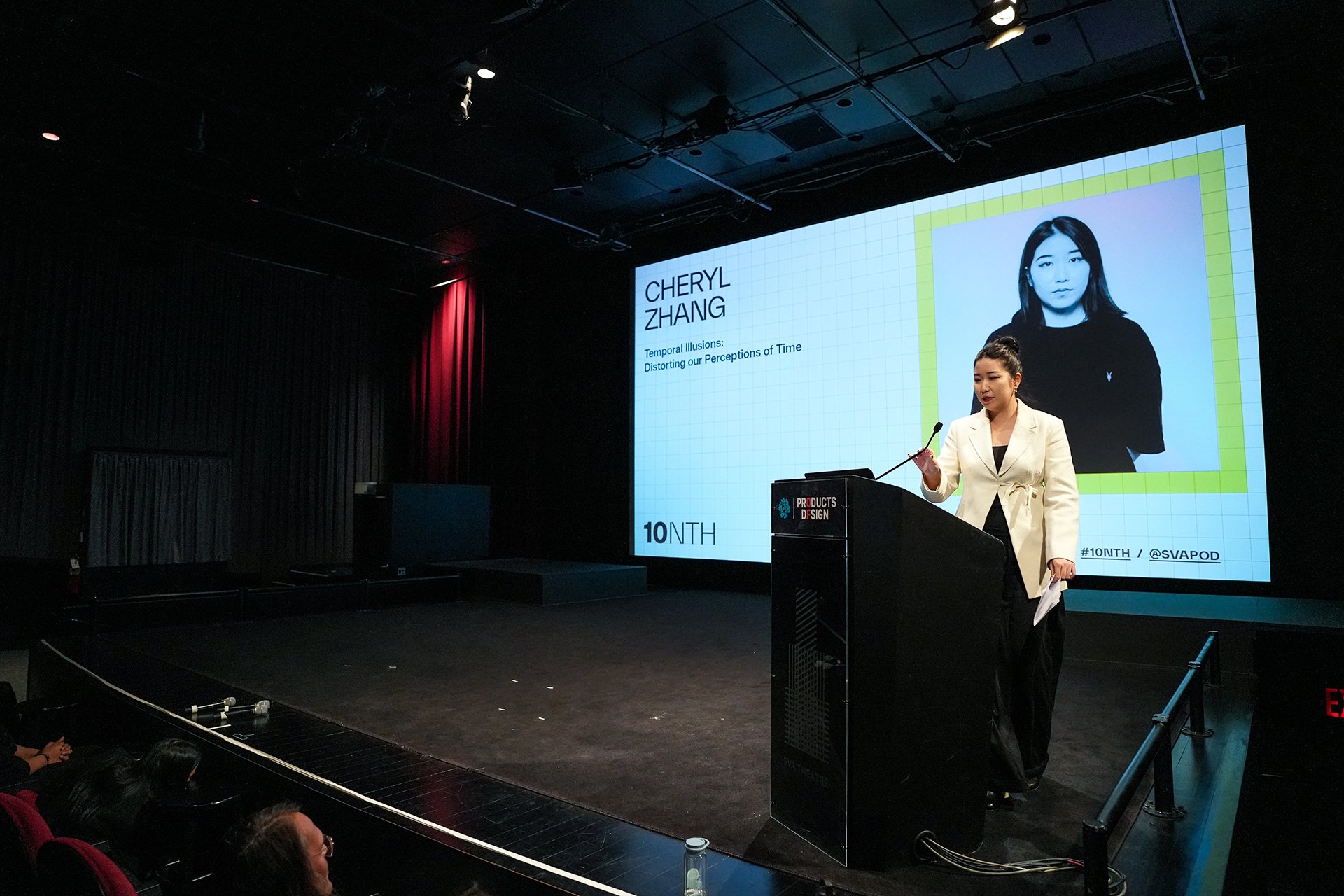
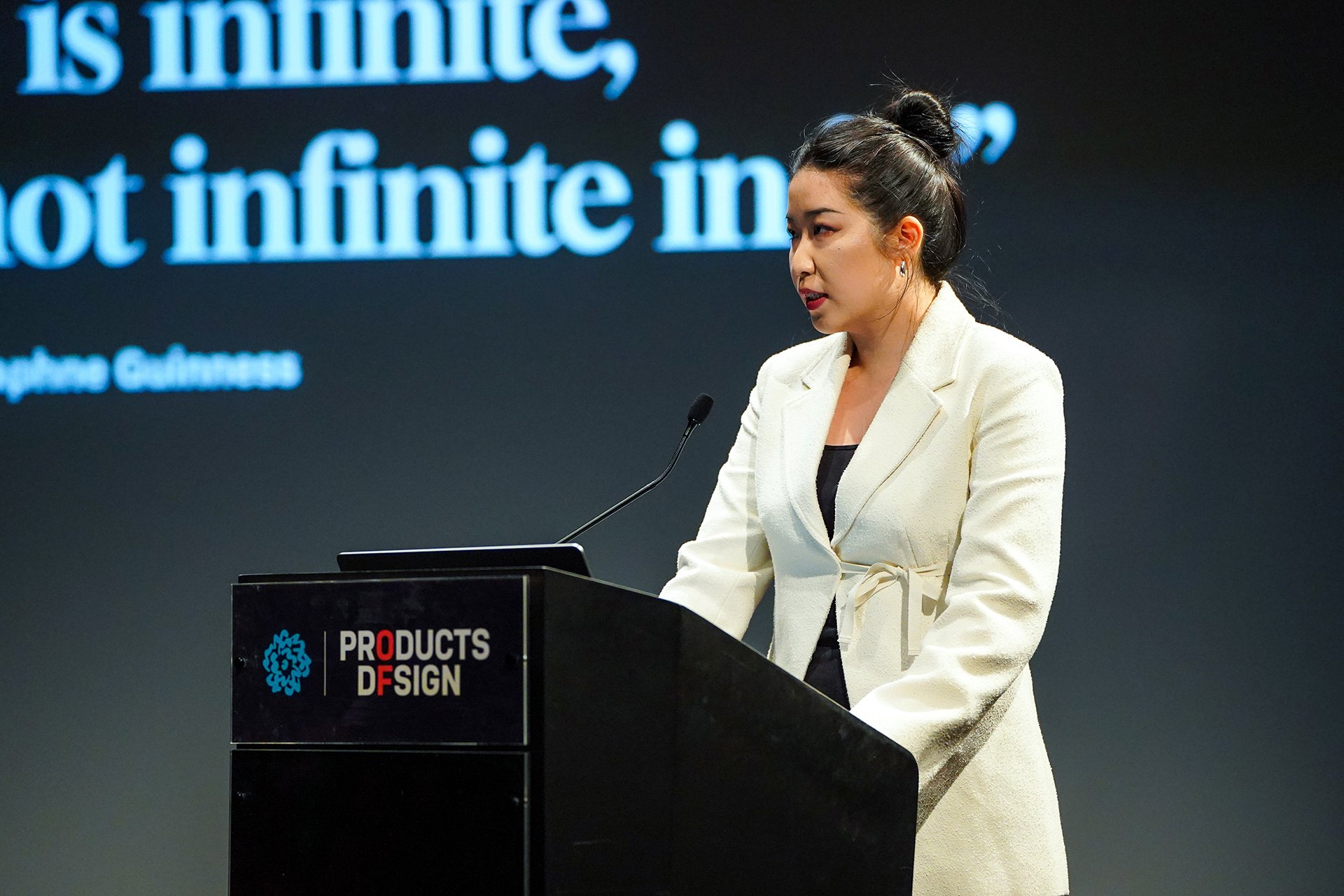
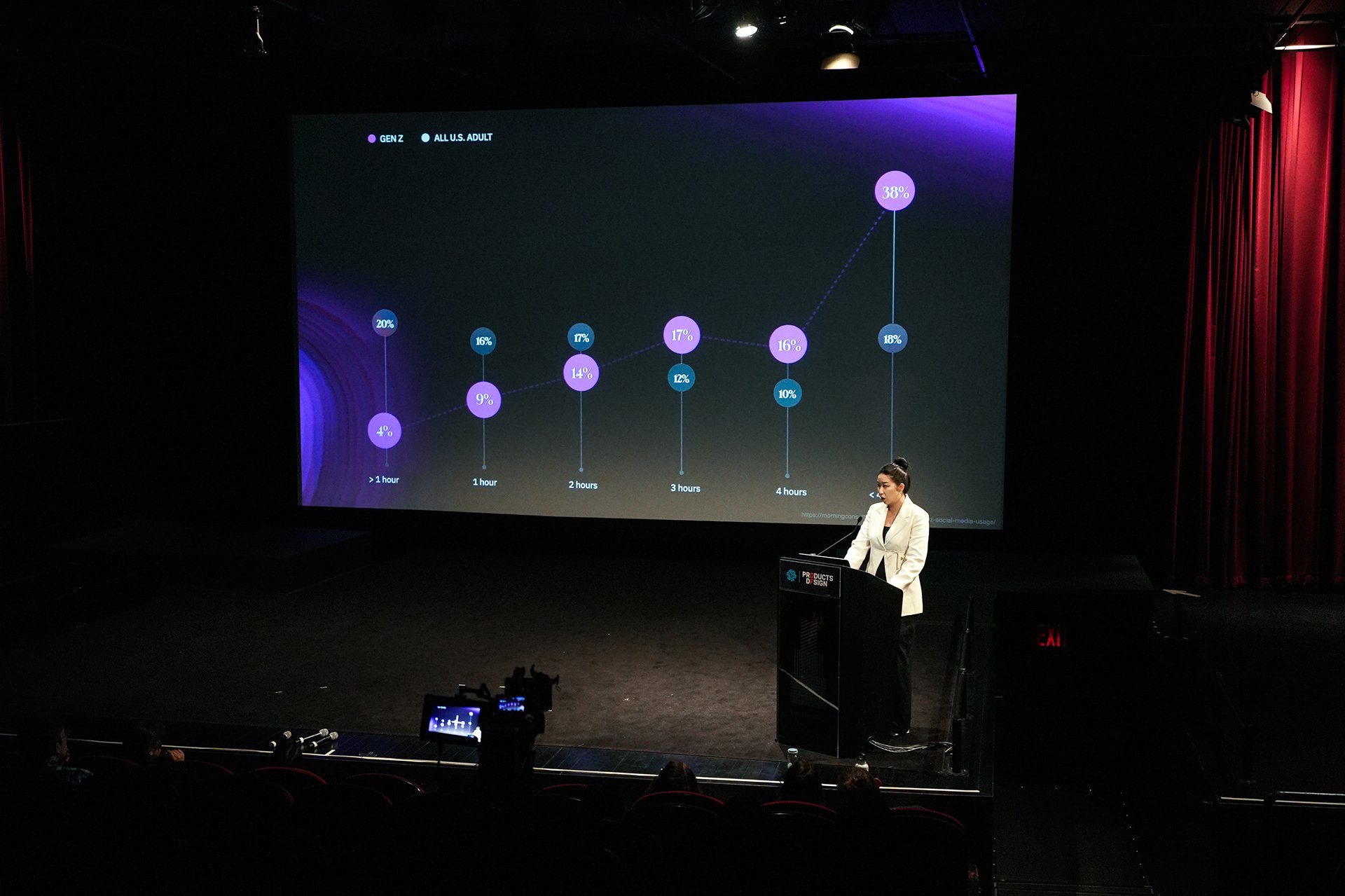
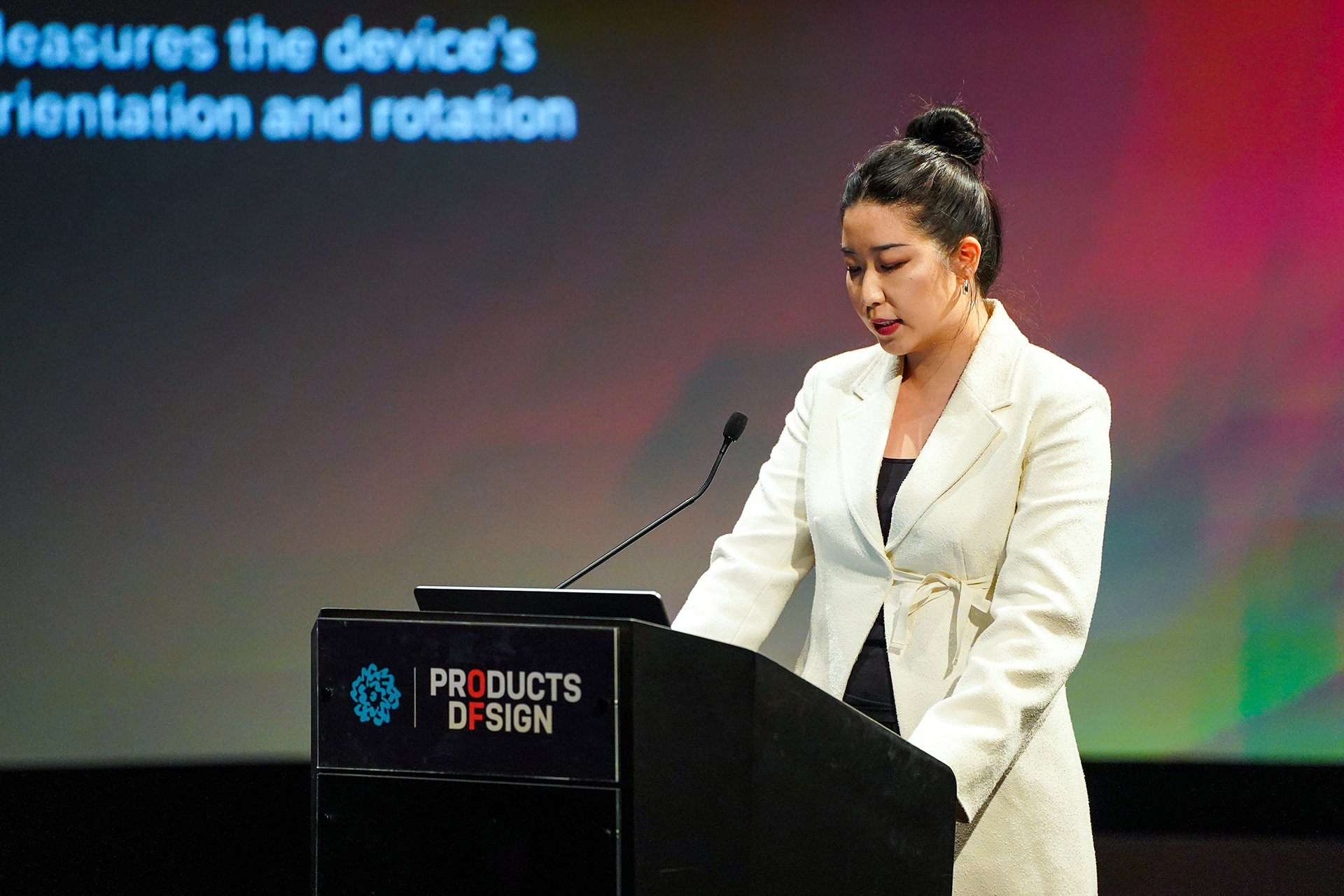
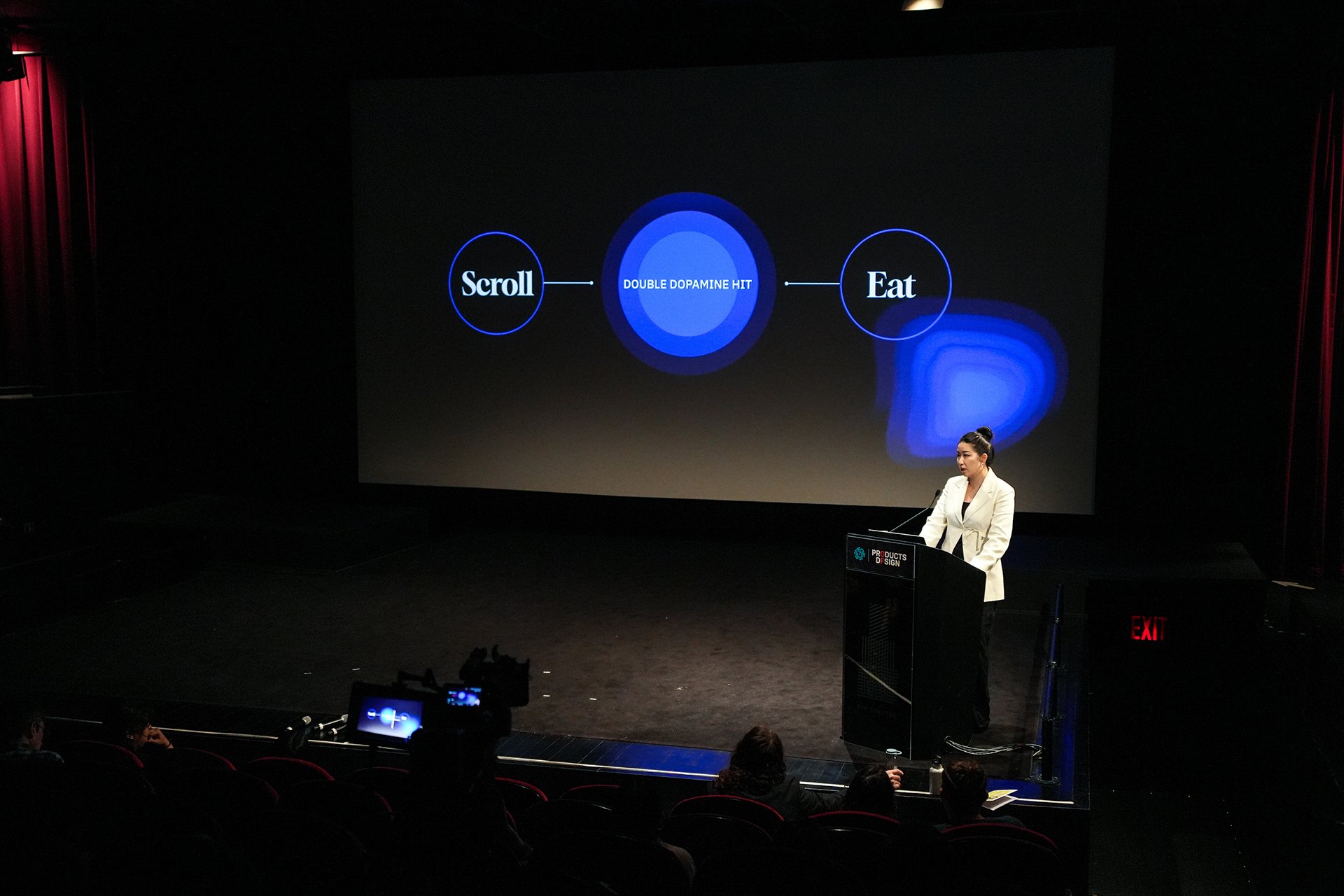
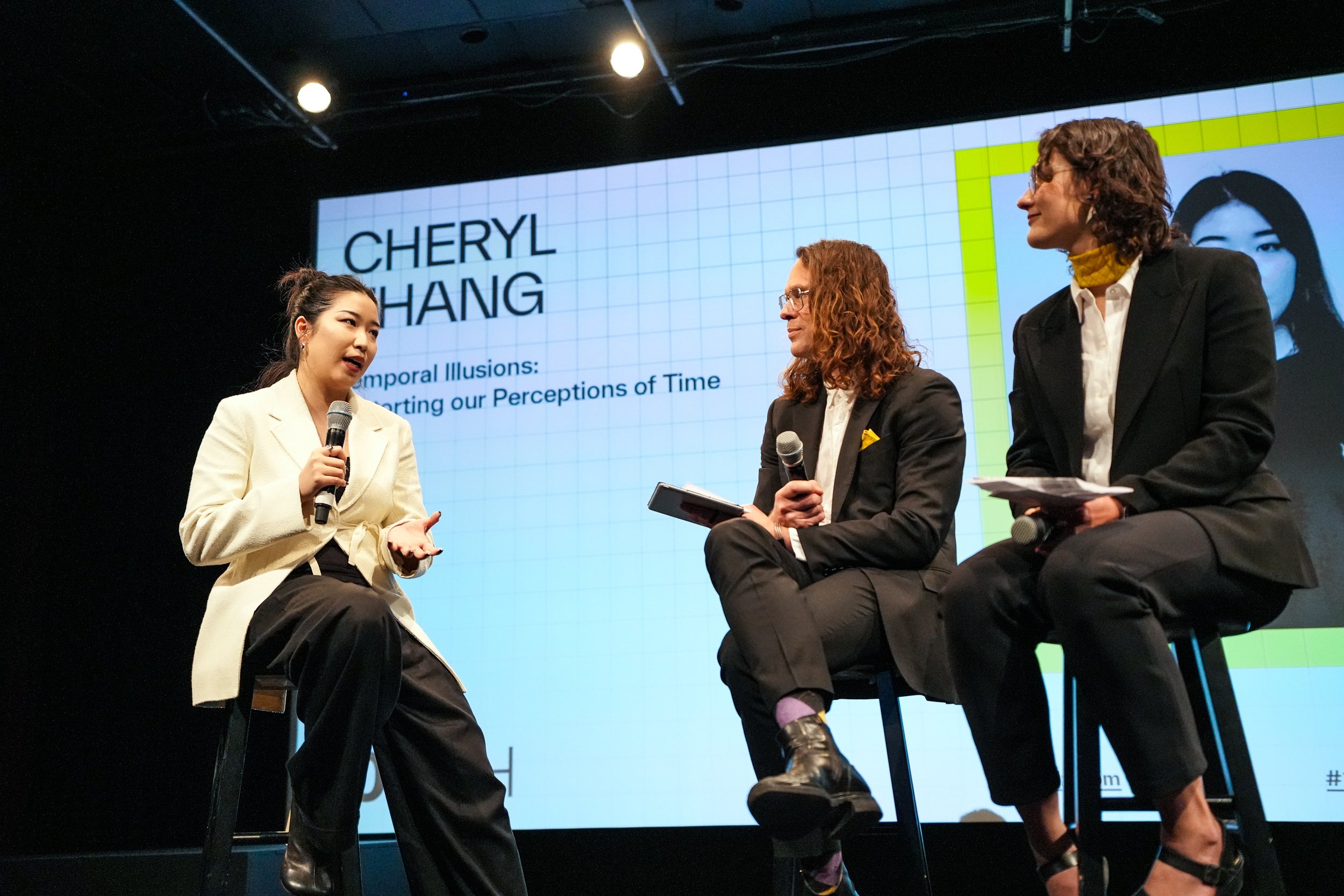
In her thesis, Cheryl explored "Using Technology to Solve Technology" through digital and physical products to stretch GenZ's subjective time.
Slo-Scro
Slo-Scro is an app that helps users gain a sense of control over their perception of time. It helps users break their mindless scrolling habits by enabling them to personalize their screen usage plan and customize an app hunter for each social media app.
When users reach their preset screen time limit, they will receive a 30-second randomized game that trains their reaction speed, which helps to increase the frame rate. Cheryl gamified the app icons into the villains that users need to defeat. Based on your screen time, they are ranked from the most powerful to the least powerful.
Based on a users' performance on the reaction games, the app will assign the number of slo-motion scrolls they can use. It encourages users to become mindful of efficiently allocating time and making responsible decisions.
Slo-Cafe
Out of 2,000 people surveyed, 50 percent mindlessly scroll during every meal. When people scroll and eat simultaneously, they get a double dopamine hit, causing their sense of subjective time to pass even faster. Cheryl designed Slo-Cafe, a dinnerware collection that stretches our subjective time through novel eating experiences. The dinnerware sets encourage users to dedicate effort to actively processing sensory information when we coordinate our muscle movement by requiring the use of both hands, eliminating the usage of phones during meals.
A double-sided utensil with a wavy handle invites users to be creative in holding them. The utensil features a single curved tine pointing upwards, which adds a more challenging eating process by requiring users to move their mouths in accordance with the angle of the curve.
A cup with a negative accent at the bottom where it rests on the bowl. Users must hold onto the cup while they eat to prevent it from tipping over.
Cheryl designed a plate with no edges, allowing food to be beautifully presented. However, users should be mindful to prevent food from sliding off the plate.
Slo-Mo
Slo-Mo is an Apple Watch app with a motion sensor to track the user's eating speed. It provides haptic feedback and encourages users to slow down. The app is as simple as setting up a workout app.
Before you start your meal, you will select from the five main food categories and set a desired eating speed.
After the 3 seconds countdown, users can relax and begin the meal.
The app uses motion-tracking sensors, an accelerometer, and a gyroscope to monitor your eating speed. When users exceed their target speed, the app will buzz and remind them to slow down.
Slo-Cafe Experience
Cheryl wanted to see how Slo-Cafe and Slo-Mo work in real life, so she offered participants two sets of different dinnerware, with a vibrometer app attached to their wrists, as a replacement for Slo-mo to track their movement speed. She found that this encouraged participants to eat in slower motion while learning new motor skills.
To learn more about Cheryl Zhang's work, take a look at her projects in more detail at cherylz.com.

